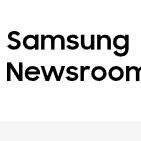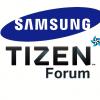By
Alex
At I/O 2021, Google announced the next version of Wear OS. The company teamed up with Samsung and merged Tizen with Wear OS for the latest generation of its wearable OS to fix all its shortcomings.
This led to speculation that Samsung could also ditch Tizen in favor of Android TV for its smart TVs. However, that will not happen as Samsung intends to continue using Tizen OS for its smart TVs.
Samsung Prefers Tizen to Android TV
Despite Android TV rapidly gaining popularity and becoming the default OS of choice for the majority of smart TVs out there, Samsung has decided to stick to Tizen for its smart TVs. The company confirmed in a statement to Protocol that "Tizen still is the default platform for our smart TVs going forward."
Samsung has been using Tizen on its Gear and Galaxy-branded wearables for years. However, with the OS now merged with Wear OS, the chances of the company launching any more Galaxy smartwatches running Tizen are pretty much nil.
Apart from Samsung, LG is the other major TV OEM that does not ship its smart TVs with Android TV. Instead, it uses WebOS for its TVs. Samsung also used Tizen on its Z series of smartphones, though the lineup was discontinued after failing to gain traction among consumers.
Source: https://www.makeuseof.com/samsung-use-tizen-smart-tvs/



Recommended Posts
Join the conversation
You can post now and register later. If you have an account, sign in now to post with your account.
Note: Your post will require moderator approval before it will be visible.